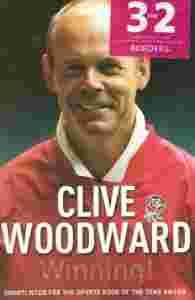Product Description
Clive Woodward was at the helm when English rugby union triumphantly heaved itself from the boozy, pot-bellied mire of amateurism to the top of the professional game at the 2003 World Cup in Australia. And in Winning he makes a robust, cogent and at times brilliant argument for taking the lion's share of the credit. As sports autobiographies go this is an extraordinary book, part personal memoir and part historical revision, of course - Woodward is not backward in correcting his critics or laying bare the politics that shroud top-level sports managers. But what sets it apart is that the former England coach presents a detailed analysis of the man-management and coaching theories that underpinned the success, in what is effectively a case study in winning. To this end there is an abundance of diagrams, flow charts and 'key rules' which at first glance will have a worryingly familiar look to anyone who's ever sat through a motivational business seminar. They formed the day-to-day intellectual touchstones that were the foundation of the Woodward era, covering the 75 matches between November 1997 and that famous victory in the Telstra Stadium. And in a sporting turn-up akin to Jonny Wilkinson's last-ditch drop-goal that felled the Aussies in Sidney, Woodward takes these unpromising raw ingredients and delivers a genuinely engrossing read: a how-to manual for aspiring coaches and an unique insight for fans. The tone is occasionally bombastic - whatever the veracity of their substance, one or two of the recounted conversations ring about as true as an episode of Acorn Antiques, but somehow it doesn't get in the way. Midway through the book, there's a rather peculiar "Author's note about confidentiality" in which Woodward claims that he will never: "show any player or member of the management in any sort of bad light". Not fashionable and frankly not much fun, but arguably entirely in keeping with the Winning philosophy . And you can't argue with results, can you?--Alex Hankin

